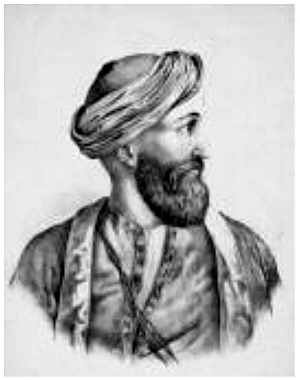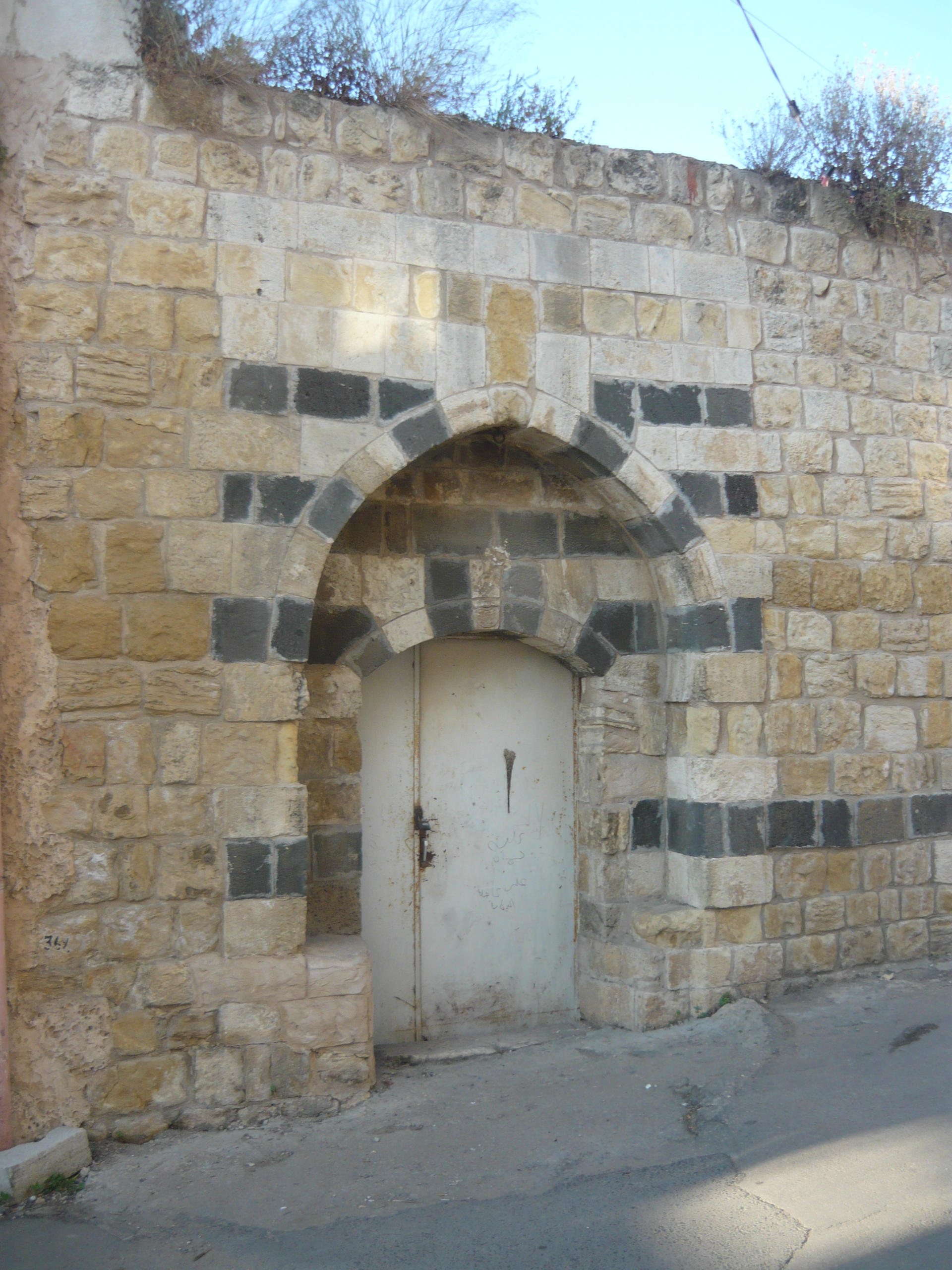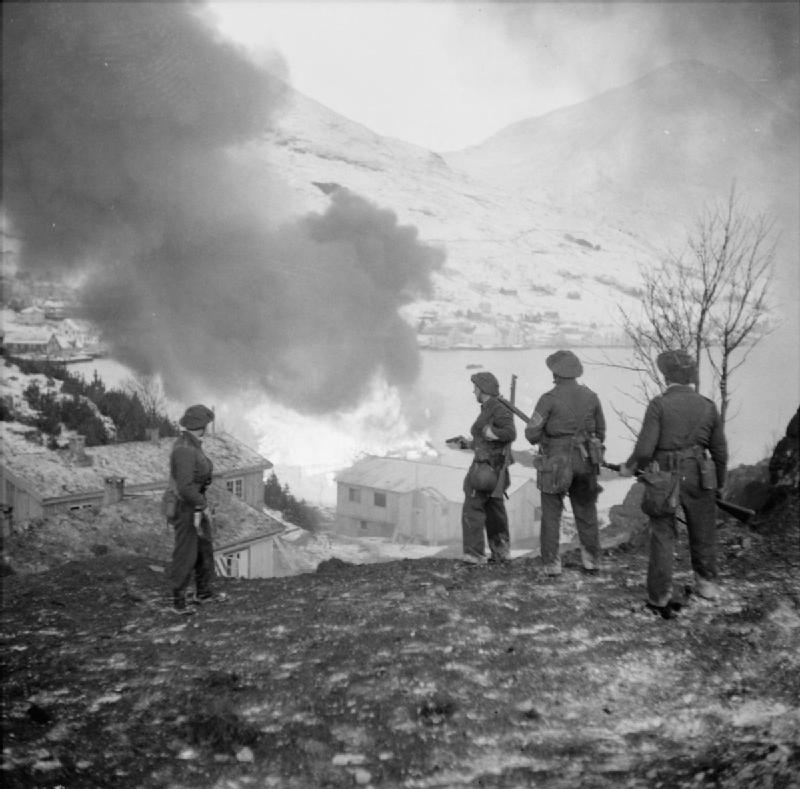|
Aqil Agha
Aqil Agha al-Hasi ( ar, عقيل آغا الحاسي, given name also spelled ''Aqil'', ''Aqila'', ''Akil'' or ''Akili''; military title sometimes spelled ''Aga'') (died 1870) was the strongman of northern Palestine in the mid-19th century, during Ottoman rule. He was originally a commander of Arab irregular soldiers, known as the Hawwara tribe, in the service of the Ottoman governors of Acre. His influence in the Galilee grew as he strengthened his alliances with the powerful Beni Sakhr and Anizzah tribes of Transjordan, and recruited unemployed Bedouin irregulars from Egypt into his own band of irregulars, who thenceforth became known as the Hanadi tribe. He was known by his men and Western travelers to be courageous, cunning and charismatic, all qualities that contributed to his rise as the ''de facto'' ruler of the Galilee.Van Der Steen,Case Study 1: Akila Agha. Throughout his rule, Aqil remained at least nominally in service to the Ottoman Empire, which paid him for ... [...More Info...] [...Related Items...] OR: [Wikipedia] [Google] [Baidu] |
Agha (Ottoman Empire)
Agha ( tr, ağa; ota, آغا; fa, آقا, āghā; "chief, master, lord") is an honorific title for a civilian or officer, or often part of such title. In the Ottoman times, some court functionaries and leaders of organizations like bazaar or the janissary units were entitled to the ''agha'' title. In rural communities, this term is used for people who own considerable lands and are influential in their community. Regardless of a rural community, this title is also used for any male that is influential or respected. Etymology The word ''agha'' entered English from Turkish, and the Turkish word comes from the Old Turkic ''aqa'', meaning "elder brother". It is an equivalent of Mongolian word ''aqa'' or ''aka''. Other uses "Agha" is nowadays used as a common Persian honorific title for men, the equivalent of "mister" in English.Khani, S., and R. Yousefi. "The study of address terms and their translation from Persian to English." (2014). The corresponding honorific term for w ... [...More Info...] [...Related Items...] OR: [Wikipedia] [Google] [Baidu] |
Beni Sakhr
The Beni Sakhar confederacy is one of the largest and most influential tribal confederacies in Jordan. The Bani Sakher began migrating to Jordan as early as the 16th century and grew to become an influential tribe as by around the mid 18th century. According to the 1986 Jordanian Electoral Law, the Bani Sakher tribe is made up of fourteen clans: Al-Fayez; AL-Jahawsheh; Al-Khirshan; Al-Jbour; Al-Salim; Al-Badareen; Al-Gudah; Al-Hammad; Al-Shra'ah and Al-Zaben (traditionally known collectively as the Ka'abnah half of the Bani Sakher); Al-Ghbein; Al-Amir; Al-Ka'abna; Al-Hgeish; Al-Saleet, and Al-Taybeen (traditionally known collectively as the Twaga half of the Bani Sakher). History Origin The Bani Sakher was a tribe title that was given to more than one tribe, but the greatest and most famous of this tribes are the sons of Sakher Al-Ta’yun from Bani Tayy, who refer to their lineage to an offense of the famous Qahtaniya tribe; specifically the Kahlani sub-group. The Tayys lived i ... [...More Info...] [...Related Items...] OR: [Wikipedia] [Google] [Baidu] |
Ottoman Egypt
The Eyalet of Egypt (, ) operated as an administrative division of the Ottoman Empire from 1517 to 1867. It originated as a result of the conquest of Mamluk Egypt by the Ottomans in 1517, following the Ottoman–Mamluk War (1516–17) and the absorption of Syria into the Empire in 1516. The Ottomans administered Egypt as an eyalet of their Empire ( ota, ایالت مصر, Eyālet-i Mıṣr) from 1517 until 1867, with an interruption during the French occupation of 1798 to 1801. Egypt always proved a difficult province for the Ottoman Sultans to control, due in part to the continuing power and influence of the Mamluks, the Egyptian military caste who had ruled the country for centuries. As such, Egypt remained semi-autonomous under the Mamluks until Napoleon Bonaparte's French forces invaded in 1798. After Anglo-Turkish forces expelled the French in 1801, Muhammad Ali Pasha, an Albanian military commander of the Ottoman army in Egypt, seized power in 1805, and ''de facto'' ... [...More Info...] [...Related Items...] OR: [Wikipedia] [Google] [Baidu] |
Muhammad Ali Of Egypt
Muhammad Ali Pasha al-Mas'ud ibn Agha, also known as Muhammad Ali of Egypt and the Sudan ( sq, Mehmet Ali Pasha, ar, محمد علي باشا, ; ota, محمد علی پاشا المسعود بن آغا; ; 4 March 1769 – 2 August 1849), was the Albanian Ottoman governor and de facto ruler of Egypt from 1805 to 1848, considered the founder of modern Egypt. At the height of his rule, he controlled all of Egypt, Sudan, Hejaz and the Levant. He was a military commander in an Albanian Ottoman force sent to recover Egypt from a French occupation under Napoleon. Following Napoleon's withdrawal, Muhammad Ali rose to power through a series of political maneuvers, and in 1805 he was named '' Wāli'' (viceroy) of Egypt and gained the rank of Pasha. As '' Wāli'', Muhammad Ali attempted to modernize Egypt by instituting dramatic reforms in the military, economic and cultural spheres. He also initiated a violent purge of the Mamluks, consolidating his rule and permanently ending th ... [...More Info...] [...Related Items...] OR: [Wikipedia] [Google] [Baidu] |
Jazzar Pasha
Ahmad Pasha al-Jazzar ( ar, أحمد باشا الجزّار; ota, جزّار أحمد پاشا; ca. 1720–30s7 May 1804) was the Acre-based Ottoman governor of Sidon Eyalet from 1776 until his death in 1804 and the simultaneous governor of Damascus Eyalet in 1785–1786, 1790–1795, 1798–1799, and 1803–1804. A Bosniak of obscure origins, he began his military career in Egypt in the service of various mamluk officials, eventually becoming a chief enforcer and assassin for Ali Bey al-Kabir, Egypt's practical ruler. He gained the epithet of ''al-Jazzar'' (the Butcher) for his deadly ambush on a group of Bedouin tribesmen in retaliation for the death of his master in a Bedouin raid. Al-Jazzar fell out with Ali Bey in 1768 after refusing to take part in the assassination of one of his former masters. He ultimately fled to Syria, where he was tasked with defending Beirut from a joint assault by the Russian Navy and Zahir al-Umar, the Acre-based ruler of northern Palestine. H ... [...More Info...] [...Related Items...] OR: [Wikipedia] [Google] [Baidu] |
Zahir Al-Umar
Zahir al-Umar al-Zaydani, alternatively spelled Daher al-Omar or Dahir al-Umar ( ar, ظاهر العمر الزيداني, translit=Ẓāhir al-ʿUmar az-Zaydānī, 1689/90 – 21 or 22 August 1775) was the autonomous Arab ruler of northern Palestine in the mid-18th century, while the region was part of the Ottoman Empire. For much of his reign, starting in the 1730s, his domain mainly consisted of the Galilee, with successive headquarters in Tiberias, Deir Hanna and finally Acre, in 1750. He fortified Acre, and the city became the center of the cotton trade between Palestine and Europe. In the mid-1760s, he reestablished the port town of Haifa nearby. Zahir withstood sieges and assaults by the Ottoman governors of Damascus, who attempted to limit or eliminate his influence. He was often supported in these confrontations by the Shia Muslim clans of Jabal Amil. In 1771, in alliance with Ali Bey al-Kabir of the Egypt Eyalet and with backing from Russia, Zahir captured Sidon, whi ... [...More Info...] [...Related Items...] OR: [Wikipedia] [Google] [Baidu] |
Crimean War
The Crimean War, , was fought from October 1853 to February 1856 between Russia and an ultimately victorious alliance of the Ottoman Empire, France, the United Kingdom and Piedmont-Sardinia. Geopolitical causes of the war included the decline of the Ottoman Empire, the expansion of the Russian Empire in the preceding Russo-Turkish Wars, and the British and French preference to preserve the Ottoman Empire to maintain the balance of power in the Concert of Europe. The flashpoint was a disagreement over the rights of Christian minorities in Palestine, then part of the Ottoman Empire, with the French promoting the rights of Roman Catholics, and Russia promoting those of the Eastern Orthodox Church. The churches worked out their differences with the Ottomans and came to an agreement, but both the French Emperor Napoleon III and the Russian Tsar Nicholas I refused to back down. Nicholas issued an ultimatum that demanded the Orthodox subjects of the Ottoman Empire be ... [...More Info...] [...Related Items...] OR: [Wikipedia] [Google] [Baidu] |
Ottoman Syria
Ottoman Syria ( ar, سوريا العثمانية) refers to divisions of the Ottoman Empire within the region of Syria, usually defined as being east of the Mediterranean Sea, west of the Euphrates River, north of the Arabian Desert and south of the Taurus Mountains. Ottoman Syria became organized by the Ottomans upon conquest from the Mamluk Sultanate in the early 16th century as a single eyalet (province) of Damascus Eyalet. In 1534, the Aleppo Eyalet was split into a separate administration. The Tripoli Eyalet was formed out of Damascus province in 1579 and later the Adana Eyalet was split from Aleppo. In 1660, the Eyalet of Safed was established and shortly afterwards renamed Sidon Eyalet; in 1667, the Mount Lebanon Emirate was given special autonomous status within the Sidon province, but was abolished in 1841 and reconfigured in 1861 as the Mount Lebanon Mutasarrifate. The Syrian eyalets were later transformed into the Syria Vilayet, the Aleppo Vilayet and t ... [...More Info...] [...Related Items...] OR: [Wikipedia] [Google] [Baidu] |
1860 Druze–Maronite Conflict
The 1860 civil conflict in Mount Lebanon and Damascus (also called the 1860 Syrian Civil War) was a civil conflict in Mount Lebanon during Ottoman rule in 1860–1861 fought mainly between the local Druze and Christians. Following decisive Druze victories and massacres against the Christians, the conflict spilled over into other parts of Ottoman Syria, particularly Damascus, where thousands of Christian residents were killed by Muslim and Druze militiamen as ethnic cleansing. The fighting precipitated a French-led international military intervention. Background The relationship between the Druze and Christians has been characterized by harmony and coexistence, with amicable relations between the two groups prevailing throughout history. After the Shehab dynasty converted to Christianity, the Druze lost most of their political and feudal powers. Also, the Druze formed an alliance with Britain and allowed Protestant Christian missionaries to enter Mount Lebanon, creating tension ... [...More Info...] [...Related Items...] OR: [Wikipedia] [Google] [Baidu] |
Palestinian Christian
Palestinians ( ar, الفلسطينيون, ; he, פָלַסְטִינִים, ) or Palestinian people ( ar, الشعب الفلسطيني, label=none, ), also referred to as Palestinian Arabs ( ar, الفلسطينيين العرب, label=none, ), are an ethnonational group descending from peoples who have inhabited the region of Palestine over the millennia, and who are today culturally and linguistically Arab. Despite various wars and exoduses, roughly one half of the world's Palestinian population continues to reside in the territory of former British Palestine, now encompassing the West Bank and the Gaza Strip (the Palestinian territories) as well as Israel. In this combined area, , Palestinians constituted 49 percent of all inhabitants, encompassing the entire population of the Gaza Strip (1.865 million), the majority of the population of the West Bank (approximately 2,785,000 versus some 600,000 Israeli settlers, which includes about 200,000 in East Jerusalem), ... [...More Info...] [...Related Items...] OR: [Wikipedia] [Google] [Baidu] |
Raid (military)
Raiding, also known as depredation, is a military tactic or operational warfare mission which has a specific purpose. Raiders do not capture and hold a location, but quickly retreat to a previous defended position before enemy forces can respond in a coordinated manner or formulate a counter-attack. A raiding group may consist of combatants specially trained in this tactic, such as commandos, or as a special mission assigned to any regular troops. Raids are often a standard tactic in irregular warfare, employed by warriors, guerrilla fighters or other irregular military forces. Some raids are large, for example the Sullivan Expedition. The purposes of a raid may include: * to demoralize, confuse, or exhaust the enemy; * to ransack, pillage, or plunder * to destroy specific goods or installations of military or economic value; * to free POWs * to capture enemy soldiers for interrogation; * to kill or capture specific key persons; * to gather intelligence. Land Tribal s ... [...More Info...] [...Related Items...] OR: [Wikipedia] [Google] [Baidu] |
Egypt
Egypt ( ar, مصر , ), officially the Arab Republic of Egypt, is a transcontinental country spanning the northeast corner of Africa and southwest corner of Asia via a land bridge formed by the Sinai Peninsula. It is bordered by the Mediterranean Sea to the north, the Gaza Strip of Palestine and Israel to the northeast, the Red Sea to the east, Sudan to the south, and Libya to the west. The Gulf of Aqaba in the northeast separates Egypt from Jordan and Saudi Arabia. Cairo is the capital and largest city of Egypt, while Alexandria, the second-largest city, is an important industrial and tourist hub at the Mediterranean coast. At approximately 100 million inhabitants, Egypt is the 14th-most populated country in the world. Egypt has one of the longest histories of any country, tracing its heritage along the Nile Delta back to the 6th–4th millennia BCE. Considered a cradle of civilisation, Ancient Egypt saw some of the earliest developments of writing, agriculture ... [...More Info...] [...Related Items...] OR: [Wikipedia] [Google] [Baidu] |


.png)



.jpg)


